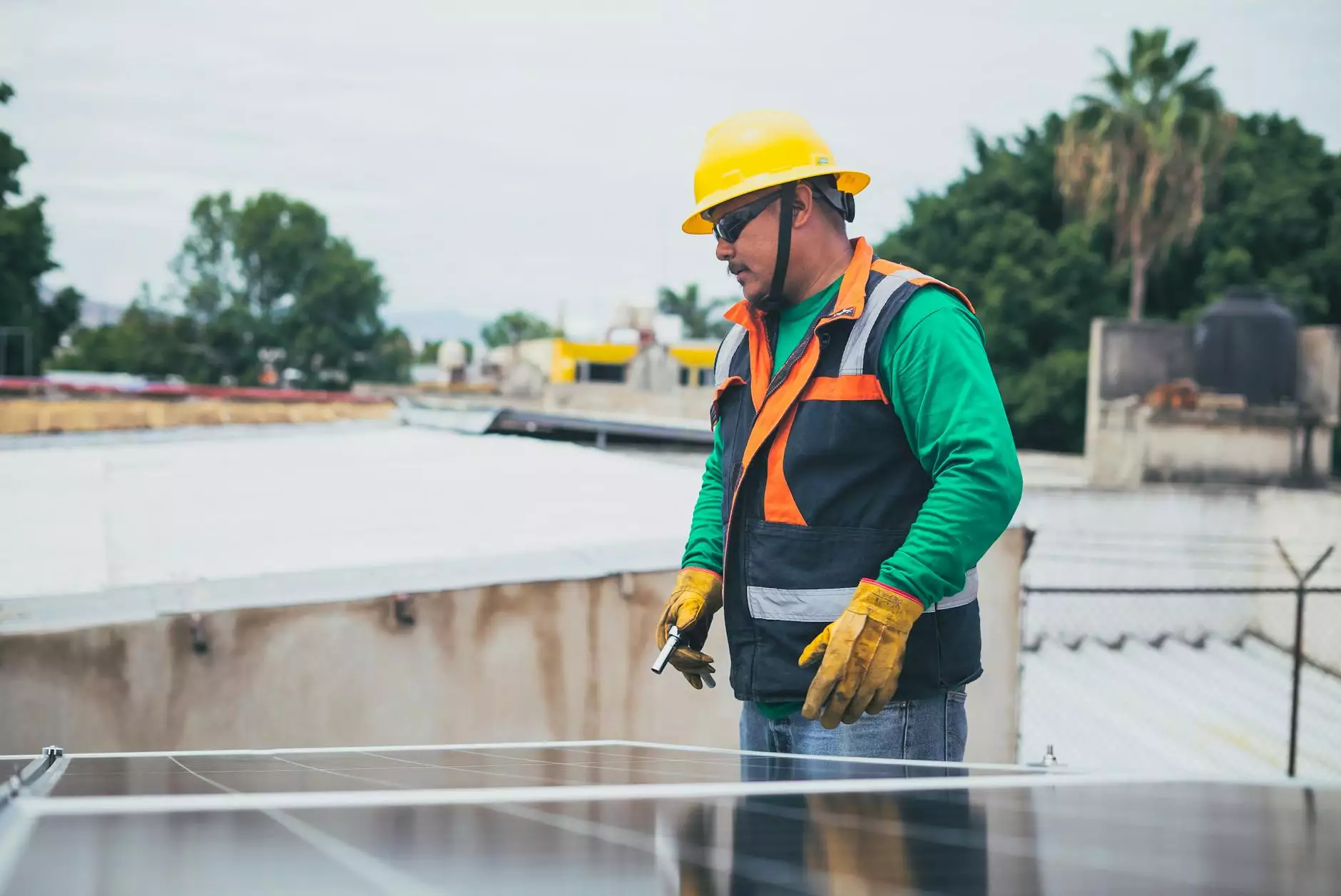Transforming Spaces: The Role of a Construction Landscaper

In today’s world, where outdoor aesthetics play a crucial role in the value and appeal of a property, the significance of a construction landscaper cannot be understated. These professionals are essential in integrating functional landscaping with beautiful designs that resonate with modern architectural trends. This article delves into the diverse roles, services, and the transformative power of construction landscapers, ensuring that property owners recognize the potential of their outdoor spaces.
The Definition of a Construction Landscaper
A construction landscaper is a professional who specializes in creating, designing, and maintaining outdoor areas, enhancing both functional aspects and aesthetic appeal. This vocation merges elements of landscape design, horticulture, environmental science, and construction management. Construction landscapers work alongside architects and builders to ensure that landscapes are not only beautiful but also sustainable and practical.
Key Responsibilities of a Construction Landscaper
The responsibilities of a construction landscaper can be extensive and varied. Here are some of the primary tasks they undertake:
- Site Analysis: Assessing the physical characteristics and potential of the property is crucial. This includes studying soil conditions, climate, drainage, and existing flora.
- Design Development: Creating layouts that suit the homeowner's needs, complement the architecture, and harmonize with the surrounding environment.
- Material Selection: Choosing suitable materials such as stones, mulch, plants, and trees that align with the design vision and budget.
- Installation: Performing physical tasks such as planting, sodding, paving, and implementing water features, ensuring proper installation techniques.
- Maintenance Programs: Developing ongoing maintenance plans to keep the landscapes healthy and attractive year-round.
The Importance of Professionalism and Expertise
Engaging a professional construction landscaper is crucial in ensuring that outdoor spaces meet both aesthetic and functional expectations. Here’s why:
- Expert Knowledge: Construction landscapers are trained to understand local ecosystems, which enables them to recommend plants and designs that thrive in specific environments.
- Innovative Solutions: They bring creativity to landscaping projects, utilizing innovative techniques and designs that enhance outdoor experiences.
- Efficiency: Professionals can complete tasks faster and more effectively, often with less waste and better results than DIY approaches.
- Problem-Solving Skills: Landscape projects often encounter unexpected challenges. Experienced landscapers can swiftly suggest alternatives or solutions that ensure project success.
Services Offered by Construction Landscapers
The range of services provided by a construction landscaper can be tailored to meet individual project needs. Below are common services offered:
1. Landscape Design
This involves creating detailed plans for outdoor areas, integrating elements such as:
- Plant Selection: Choosing the right plants based on the climate, soil type, and aesthetic preferences.
- Hardscaping: Incorporating non-plant elements like patios, walkways, and retaining walls.
- Irrigation Systems: Designing efficient watering systems to maintain the landscape's health.
2. Installation Services
The physical realization of a landscape design includes:
- Soil Preparation: Ensuring the soil is nutrient-rich and well-drained.
- Planting: Proper planting techniques for trees, shrubs, and flowers.
- Constructing Features: Building patios, decks, fences, and water features according to design plans.
3. Landscape Maintenance
Regular maintenance is key to the longevity and attractiveness of a landscape. Services include:
- Lawn Care: Mowing, fertilizing, and aeration.
- Pruning and Trimming: Keeping plants healthy and promoting growth.
- Pest Control: Managing and treating plant diseases and pests.
The Environmental Impact of Landscaping
Today’s construction landscapers are not just focused on aesthetics; they are also significantly concerned with environmental sustainability. Here are some ways in which landscaping impacts the environment:
Sustainable Practices
Utilizing sustainable practices such as:
- Xeriscaping: Designing landscapes that require little to no irrigation.
- Native Plant Utilization: Incorporating local flora that supports local wildlife and requires less water.
- Rain Gardens: Designing areas that reduce runoff and increase groundwater recharge.
Carbon Footprint Reduction
Well-planned landscaping can significantly reduce a property’s carbon footprint. By:
- Increasing Green Space: More plants mean improved air quality and carbon absorption.
- Implementing Trees: Trees provide shade, reducing energy consumption for cooling.
Enhancing Property Value Through Landscaping
Investing in professional landscaping services often yields significant returns. Properties with well-maintained landscapes typically see an increase in market value. Key areas where value is enhanced include:
- First Impressions: Attractive landscapes create positive first impressions for potential buyers.
- Usable Outdoor Space: Landscapes that promote outdoor living spaces can appeal to families and individuals alike.
- Energy Efficiency: Properly placed trees and plants can reduce energy costs by providing natural cooling.
Choosing the Right Construction Landscaper
Selecting the right construction landscaper requires careful consideration. Here are tips on what to look for:
- Experience and Expertise: Check for credentials, past projects, and client reviews.
- Portfolio: Review a portfolio of previous work to assess style and quality.
- Communication Skills: A reliable landscaper should be able to listen to your needs and communicate effectively throughout the project.
- Warranty and Maintenance Options: Inquire about warranties on work completed and ongoing maintenance services.
Conclusion: The Future of Landscaping
The role of a construction landscaper will continue to evolve as urban areas expand and the importance of sustainable practices grows. With their blend of artistry and technical skills, construction landscapers ensure that outdoor spaces are functional, beautiful, and environmentally supportive. Homeowners looking to maximize their property’s potential should consider engaging a professional construction landscaper to realize their visions and enhance their outdoor living experience.
Contact Us
For more information about our construction landscaping services, or to schedule a consultation, visit our website at cisconlandscaping.com.









